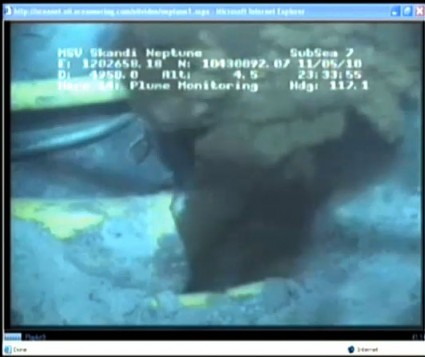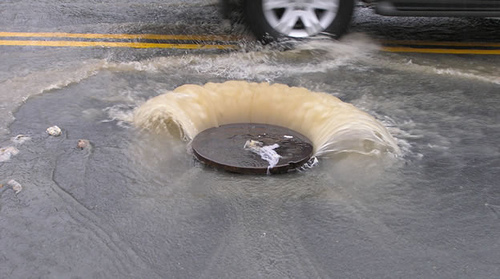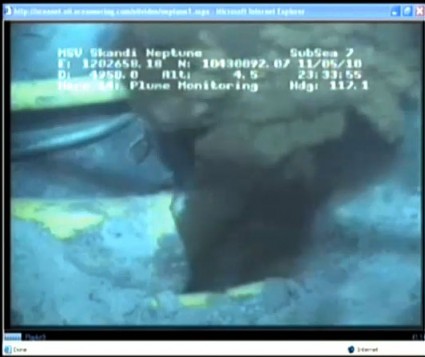 Worst-case estimates of the oil spill were kept from the public, a presidential commission says.Reports are in, and the results aren’t good for the Obama administration’s response to the oil spill. A presidential commission criticized the government for blocking worst-case oil spill estimates from the public, for underestimating the size of the spill, and for not being prepared for the wide-spread use of dispersants. And those are just a few of the slaps to be found in the four reports released by the commission on Wednesday.
Worst-case estimates of the oil spill were kept from the public, a presidential commission says.Reports are in, and the results aren’t good for the Obama administration’s response to the oil spill. A presidential commission criticized the government for blocking worst-case oil spill estimates from the public, for underestimating the size of the spill, and for not being prepared for the wide-spread use of dispersants. And those are just a few of the slaps to be found in the four reports released by the commission on Wednesday.
The White House responded, with the Office of Management and Budget denying it blocked NOAA from releasing worst-case oil flow estimates.
So is the critique fair? Jeffrey Kluger at Time says yes, and no:
The commission is right that there was a random, wheel-of-fortune quality to the ever-changing estimates of the flow rate, with the only constant being that the numbers kept going up … Part of the reason for the uncertainty was the lack of good monitoring data. The Obama administration did show regrettable credulousness in accepting BP’s initial lowball figure, but there weren’t a lot of alternatives since BP was the only party with access to the well and the robot subs that could begin to take the measure of the flow rate.
In the end, Kluger points out, it’s much better that we’re discussing what should have happened rather than what still needs to be done:
It’s a measure, perhaps, of how comparatively well the crisis was handled that as the six-month anniversary approaches, the majority of the discussions are over post-mortem analyses like the new report as opposed to over how to handle a still-unfolding environmental disaster. The oil spill was nowhere near “Obama’s Katrina” as many claimed it would be. But nor was it the Administration’s finest hour. The President likes to talk about teachable moment; let’s hope this was one of them — and that the White House itself learned a few things too.
In other green news:
Coast is clear: Secretary of the Interior Ken Salazar gave the final sign-off to the long-delayed Cape Wind project off the coast of Massachusetts. [The Hill]
Losing their tops: West Virginia is suing the EPA and the Army Corp of Engineers to reverse tougher regulations against mountain-top mining adopted by the Obama administration. [The New York Times]
Memory like an elephant: In trying to foster comparisons of Barack Obama to Jimmy Carter, the right-wing media is choosing to ignore that George Bush, Jr, also had solar panels installed on the White House. [Media Matters]
Back burner: New research suggests that the sun’s role in global warming may have been overestimated, but still concludes the humans are responsible. [BBC]
Labels are turned: Products will now face stricter rules before they can be advertised as “environmentally friendly.” [The New York Times]



